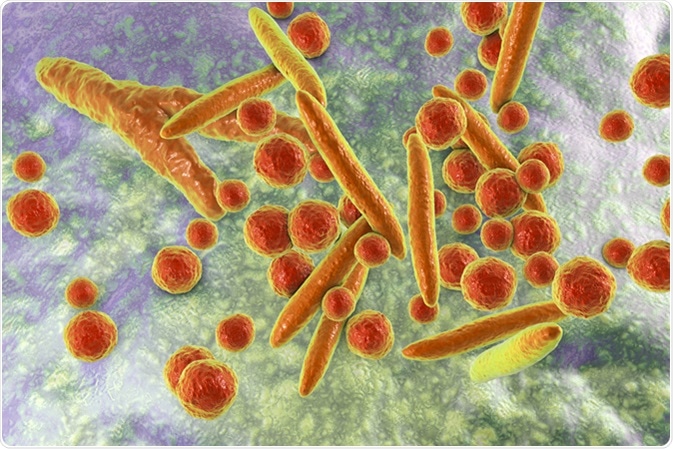What is Crohn’s Disease?
Crohn’s disease (CD) is an inflammatory bowel disease (IBD) and is characterized by the following symptoms:
- Abdominal pain
- Diarrhea
- Bleeding from the rectum
- Weight loss
- Joint pain
- Skin problems
- Fevers
- Intestinal blockages
- Malnutrition
Crohn’s disease is not limited to a certain part of the gastrointestinal tract and can affect any part of the tract. Crohn’s disease is most commonly seen in young adults, but can affect people of any age. Surgical intervention is an option for Crohn’s, but usually treatment aims to relieve symptoms of the disease by reducing inflammation of the intestines.
The cause of the disease is unknown, but studies suggest that gut bacteria and mycoplasmas may be involved in Crohn’s etiology .
What are Mycoplasmas?
Mycoplasmas are small parasitic bacteria that do not have cell walls. Owing to their flexible membranes, they can take on many different shapes. They can survive without oxygen and require exogenous cholesterol for entry into other cells.

Mycoplasma bacteria, 3D illustration showing small polymorphic bacteria which cause pneumonia, genital and urinary infections. Image Credit: Kateryna Kon / Shutterstock
Once a mycoplasma has contaminated a cell, it can cause a number of cellular changes, including alterations in cell growth and metabolism, as well as damage to chromosomes. Additionally, destruction of cell lines may occur in particularly severe cases of mycoplasma contamination.
The exact mechanism of mycoplasma infection remains unknown. Mycoplasmas are resistant to many antibiotics and therefore pose problems in the treatment of bacterial contaminations of cell cultures.
Some bacteriostatic antimicrobial agents may suppress the growth of mycoplasmas and could limit their effects. However, mycoplasmas have developed antibiotic-resistant strains, rendering antibiotic treatment ineffective.
Mycoplasmas are slow-growing cells and their effects on cell cultures once infected are varied and seemingly unlimited . Their ability to multiply within the host cell is yet to be demonstrated unequivocally.
In Crohn’s Disease
Mycoplasmas have been identified in patients with Crohn’s disease in the rectum and the anal canal in two human studies. Intestinal mycoplasmas have also been found in the small intestine or colon in rats, horses, pigs, cattle, primates and humans.
Mycoplasmas in dogs have been associated with colitis, a condition in which the inner lining of the colon is inflamed.
A study that aimed to investigate the frequency of the presence of mycoplasma pneumoniae in patients with inflammatory bowel disease found that, from a pool of 49 endoscopic biopsies from 19 patients with Crohn’s disease, the rate of mycoplasma pneumoniae DNA was much higher in CD patients compared to patients with ulcerative colitis and non-IBD controls.
Dietary and environmental factors have all been thought to be involved in the etiology of Crohn’s disease.
The role of mycoplasmas, as they have been identified numerous times in patients with Crohn’s disease, is another area of research in the search for a cause for Crohn’s disease. Fluorescent staining for mycoplasma in Crohn’s tissue showed intracellular organisms similar to mycoplasma.
Polymerase chain reaction (PCR), a molecular-based technique used in the analysis of short sequences of DNA or RNA, shows that mycoplasma pneumoniae are seen more significantly in intestinal tissue from patients with Crohn’s disease.
Summary
The way in which mycoplasmas work is not currently well understood, and their role in the etiology and pathogenesis of Crohn’s disease is neither fully understood nor unequivocally confirmed.
Further research into this area to identify a cause for Crohn’s disease is necessary.
Further Reading
Last Updated: Feb 21, 2023